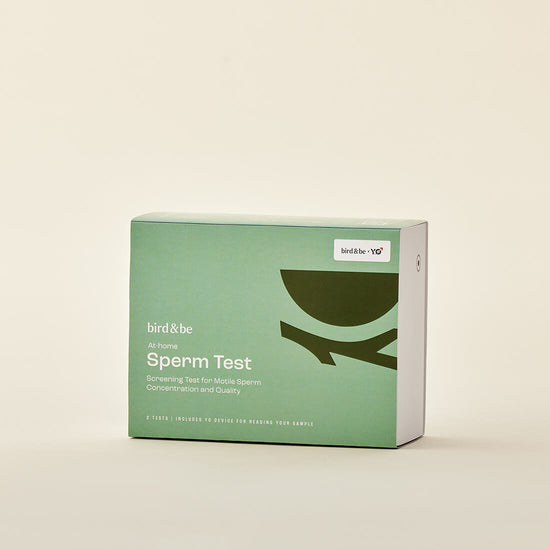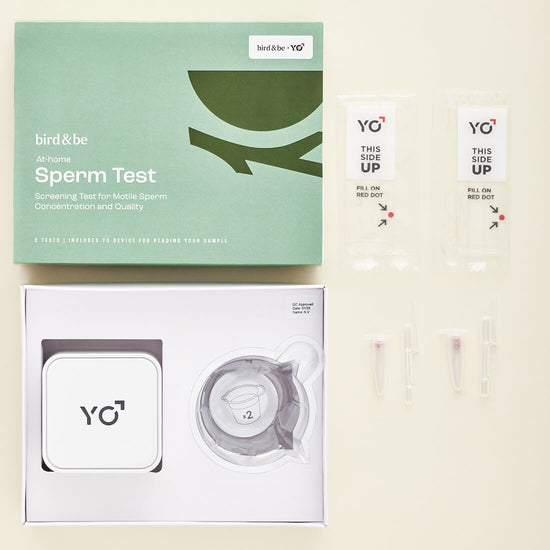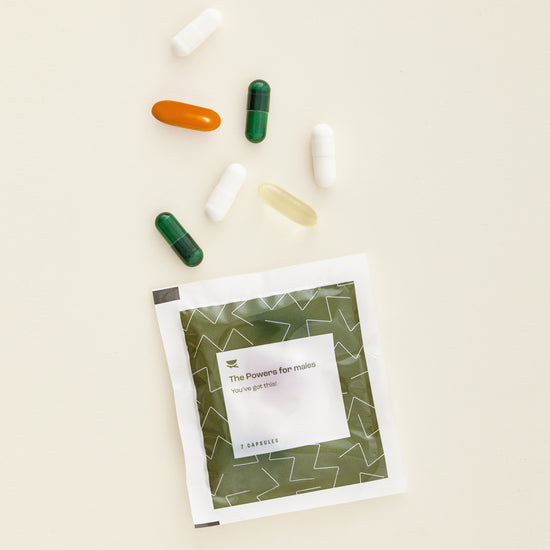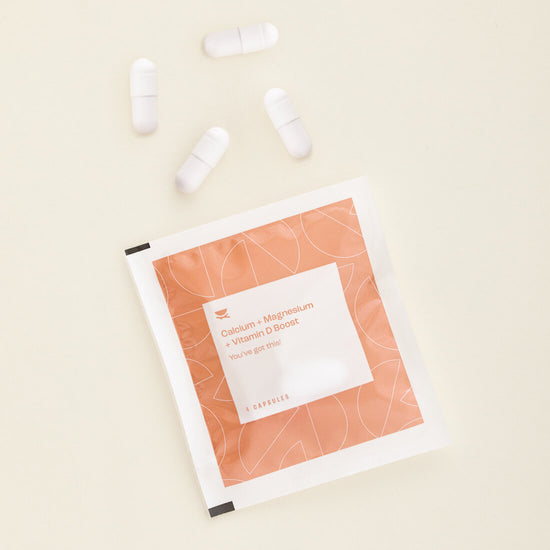Male factor infertility accounts for 35 to 50 percent of all infertility cases, and since the sperm’s DNA will make up half of the embryo’s DNA this genetic material needs to be healthy and intact. After all, it is literally the instruction booklet for the function and survival of sperm and what will eventually become the embryo. When those DNA strands, which are coiled and compacted into chromosomes, are damaged, they can affect sperm quality and directly impact the ability of the sperm to fertilize an egg, and the health of the resulting embryo and fetus.
What is Sperm DNA Fragmentation Index (DFI)?
Sperm DFI is a test used as a marker of damaged genetic material. DNA can accumulate small breaks in its strands from oxidative stress (having high levels of free radical particles without enough antioxidants to de-activate them) and from being exposed to toxins. These small breaks can happen without killing the sperm cell but majorly affecting its function, including the ability to swim (sperm motility) and fuse with the egg. The more damage to the DNA, the less successful that sperm will be. In a Sperm DFI Test, a high score is not what you want—the higher the score, the more damage. Think of it like a sperm stress test, where the sperm DNA integrity is being evaluated by its tendency to fragment under stress.
What causes sperm DNA fragmentation?
DNA can become damaged in the presence of high oxidative stress and inflammation. There are lots of things that can cause this including:
- Infections
- Advanced paternal age (older than 40 years)
- Varicocele (enlarged scrotal veins)
- Obesity
- Poor diet
- Smoking
- Testicular overheating
- Chemotherapy and radiation
- Chronic exposure to phthalates (found in synthetic fragrances and plastics)
- Air pollution
- Iron overload
Sperm DNA fragmentation can also happen when a sperm cell starts developing abnormally. This is quite common, and the body deals with defective sperm by having them undergo programmed cell death, also called apoptosis. (Think of this as a self-destruct mechanism.) But if the self-destruct program doesn’t go off, that abnormal sperm can turn into a mature sperm cell carrying the fragmented DNA with it.
When the egg and sperm fuse together, the egg has a repair kit that can try to fix some damaged portions of the DNA, but that repair kit isn’t always effective. If the damage is too great, that embryo may not fully develop, could have issues implanting into the uterus, could end in a pregnancy loss, or it could survive but the health of the baby may be severely affected.
Factoring in that a healthy egg can be a skilled MacGyver, sperm that have high DFI scores could still be successful in IVF cycles. But this requires a high-quality egg to overcome it.
When should testing for sperm DNA fragmentation be done?
Sperm DNA fragmentation tests were first developed for helping measure bull (cow) and stallion (horse) fertility. Poor sperm DNA integrity led to decreased pregnancy outcomes, showing DNA fragmentation rates that were four times higher in bulls with low fertility. In humans, sperm DNA fragmentation test rates were twice as high in infertile couples.
Although this isn’t considered a routine fertility test, most specialists will run it in cases of:
- Unexplained infertility
- Recurrent pregnancy loss
- Failed IUI or IVF cycles
- If significant risk factors (smoking, regular exposure to overheating or toxins) are present
Can sperm with DNA fragmentation still fertilize an egg?
High rates of sperm DNA fragmentation (greater than about 30 percent DFI) are associated with low rates of pregnancy and live births, however, having a high sperm DFI score isn’t the sole predictor of reproductive success since a healthy conception relies on many different factors. If a test comes back with a high fragmentation score, it’s a good wake-up call to start work on protecting and nurturing the next cohorts or sperm that will be produced (sperm is continuously being produced, takes about three months to mature and is sensitive to harmful or protective measures). This includes dietary and lifestyle changes and the use of antioxidants. There are many important factors in fertility that are outside your control (like your age and your genetics), so it’s a good idea to optimize the factors that you have some control over.
If you’re undergoing IVF and have high sperm DFI (which might be the underlying reason why you require IVF in the first place), most reproductive endocrinologists would recommend to proceed with Intracytoplasmic Sperm Injection (ICSI) instead of IVF as the method of fertilization. Where in IVF, a large sample of sperm are left to incubate with the egg in the hopes that one will fertilize it on its own, an ICSI procedure involves the selection of a champion-looking sperm (one that is normally formed and fast swimming) and injecting it directly into the egg. Patients with high sperm DFI who undergo ICSI tend to have better fertilization rates, clinical pregnancy rates, and live birth rates, compared to those who do IVF.
How can you improve sperm DNA fragmentation?
Sperm DFI is a reflection of the sperm sample as a whole, and not about any specific sperm cell. Ultimately, only one sperm will fertilize an egg. If there are more poor quality sperm surrounding the eggs, the higher the chance that one of these will be the one to fertilize and generate an embryo, so opting to improve the quality of sperm overall is important. You can’t do much about your age, but you can impact DNA fragmentation by removing or fixing other known causes of damage, and by protecting that DNA from oxidative stress with antioxidants. Here are two key ways to improve sperm DNA fragmentation:
1. Address the causes of DNA damage.
- Quit smoking
- Avoid binge drinking
- Avoid testicular overheating (for example, pass on prolonged hot tub soaks)
- Surgical repair of varicocele (if present)
- Freeze healthy sperm samples before undergoing chemotherapy or radiation therapy
- Get treated for any urological infections
- Consider stopping all iron supplementation if you are not deficient and were not prescribed it by your doctor (Iron can cause DNA damage in testicular cells)
- Avoid exposure to phthalates and other toxic chemicals
2. Boost your antioxidants.
Since oxidative stress is one of the main causes of DNA fragmentation in sperm, combating the effect of free radicals and protecting sperm DNA during their development is a critical strategy.
- Zinc is an important mineral that protects developing sperm cells from bacteria and DNA damage. When those with poor sperm motility were given a high-dose zinc supplement (200 mg twice daily), it led to lower oxidative stress levels and lower sperm DFI scores after three months of treatment.
- Vitamins C and E are two well-known antioxidant vitamins. Vitamin E is important for cardiovascular health and overall blood flow, protecting blood vessels from damage, but it’s also been associated with greater sperm quality. Vitamin C and Vitamin E together can help improve sperm quality and pregnancy rates in infertile males. In one small study, one gram of each led to improvements in sperm DNA fragmentation in as little as two months.
- L-Carnitine is an amino acid derivative that helps metabolize fats and lipids for cell energy production. It’s found in the greatest concentrations in epididymal fluid and is involved in sperm maturation. As an antioxidant, L-Carnitine helps preserve and improve sperm motility and viability.
- CoQ10 (Coenzyme Q10) is an important antioxidant that also increases the energy production within cells, including sperm cells. Taking 200 to 400 mg of CoQ10 daily has been shown to improve sperm count, motility and morphology (shape and form), and antioxidant activity. Sperm are essentially vehicles that transport DNA to the egg. They have a lot of mitochondria in their neck that powers the tail to make the nearly impossible journey to the ends of the fallopian tube.
- NAC (N-Acetyl Cysteine) protects sperm DNA and the energy-producing mitochondria in the sperm cell. It can improve semen viscosity, improve sperm count, motility, morphology, antioxidant status, and reduce DNA fragmentation.
- Alpha Lipoid Acid (ALA) is an antioxidant shown to maintain sperm viability, reduce the production of free radicals and protect sperm DNA integrity.









